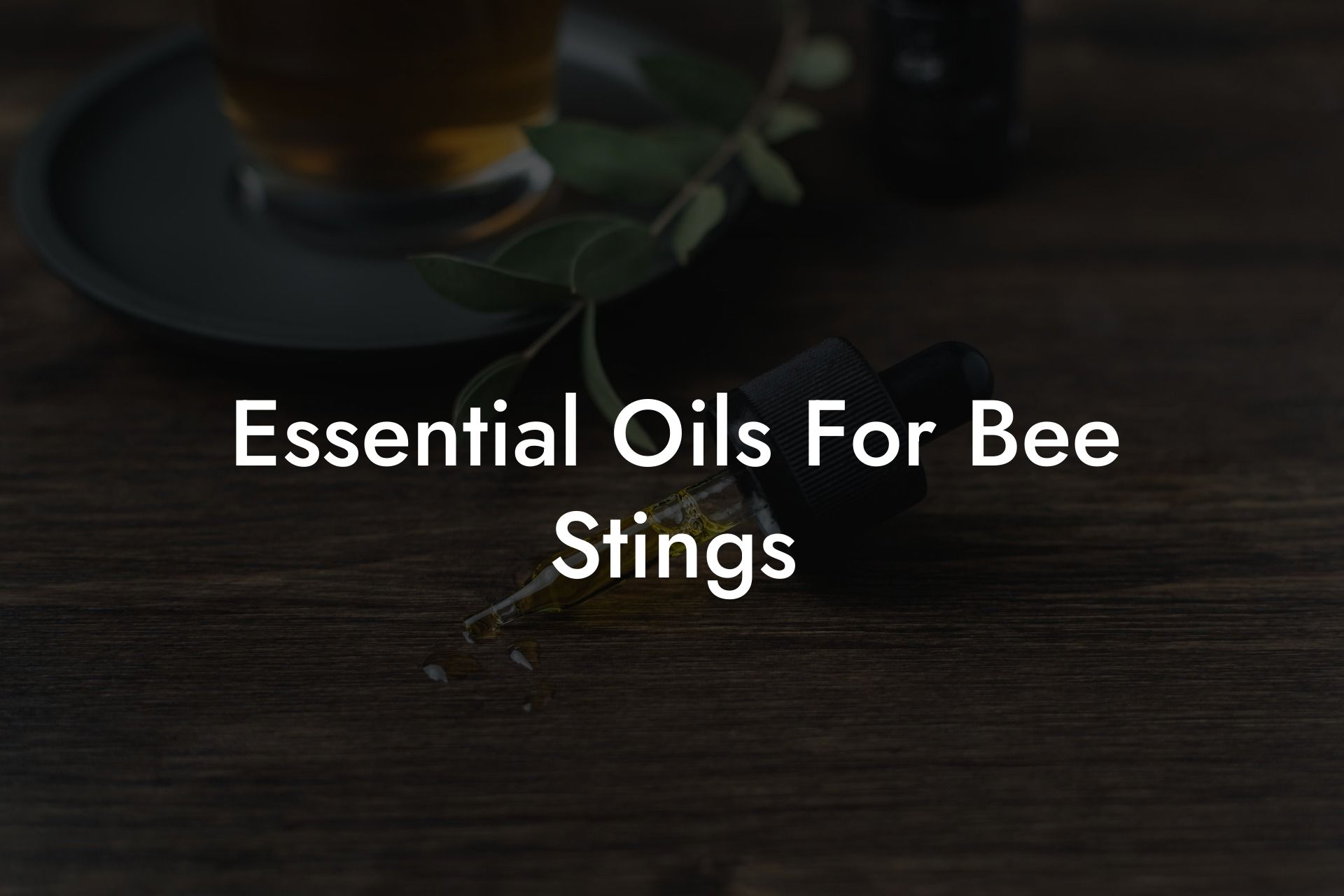Bee stings can be a painful and annoying experience that many of us encounter during the warmer months. With the increasing awareness of the benefits of natural remedies, essential oils have become a popular choice for soothing and treating bee stings. In this article, we will explore the best essential oils for bee stings and how they can help alleviate the discomfort and promote healing.
Table of Contents
The Impact of Bee Stings
Bee stings are not only painful, but they can also lead to redness, swelling, and itching around the sting site. In more severe cases, an allergic reaction can occur, which may result in difficulty breathing, rapid heart rate, or even anaphylactic shock. Regardless of the severity, finding relief is essential to ensure comfort and proper healing.
How Essential Oils Can Help
Essential oils are highly concentrated plant extracts that have been used for centuries to promote health and well-being. Using essential oils for bee stings can provide several benefits, including:
– Reducing pain
– Minimizing inflammation
– Alleviating itching
– Preventing infection
– Promoting healing
Top Essential Oils For Bee Stings
While there are numerous essential oils with beneficial properties, the following are particularly effective when it comes to treating bee stings:
Lavender Oil
Lavender oil is known for its calming and soothing properties. It is effective in reducing pain and inflammation, making it an ideal choice for bee stings. Lavender oil also has antiseptic properties that can help prevent infection.
Tea Tree Oil
Tea tree oil is widely celebrated for its powerful antiseptic and anti-inflammatory properties. Applying tea tree oil to a bee sting can help reduce the likelihood of infection and minimize swelling.
Peppermint Oil
Peppermint oil provides a cooling sensation that offers immediate relief from the burning pain of a bee sting. Additionally, it has anti-inflammatory and analgesic properties that can help reduce swelling and pain.
Chamomile Oil
Chamomile oil is famous for its calming effects and is commonly used to treat skin irritations. With its potent anti-inflammatory and analgesic properties, chamomile oil can help alleviate itching, swelling, and pain associated with bee stings.
Eucalyptus Oil
Eucalyptus oil has strong anti-inflammatory properties that can help alleviate swelling and pain caused by bee stings. Additionally, the menthol-like aroma of eucalyptus oil can help soothe the respiratory system if you experience difficulty breathing due to an allergic reaction.
How to Use Essential Oils for Bee Stings
When using essential oils for bee stings, it’s important to follow the proper dilution and application methods:
1. Remove the stinger by gently scraping the affected area with a flat-edged object, such as a credit card.
2. Dilute the essential oil in a carrier oil, such as coconut oil or almond oil, before applying it to the skin. A safe dilution ratio is 2-3 drops of essential oil per teaspoon of carrier oil.
3. Apply the diluted essential oil mixture to the sting area using a cotton ball or swab.
4. Cover the area with a bandage or gauze to protect it and promote healing.
5. Reapply the essential oil mixture every few hours or as needed for relief.
Essential Oils For Bee Stings Example:
Let’s say you are outdoors enjoying a lovely picnic when suddenly, you feel a sharp sting on your arm. A bee has stung you, and the area quickly becomes swollen and painful. You remember that you have brought your Oshu Oils essential oils with you. You dilute a few drops of lavender oil in a carrier oil and gently apply the mixture to the sting site. The pain and swelling begin to subside, and you can continue enjoying your day outside.
In conclusion, essential oils are a natural and effective way to find relief and promote healing from bee stings. By choosing the right oils and using them correctly, you can quickly alleviate pain, reduce inflammation, and prevent infection. If you found this article helpful, please feel free to share it with others who may benefit from this information. Don’t forget to explore other guides on Oshu Oils for more knowledge on essential oils and aromacology, and consider trying the Oshu Oils range of essential oils for yourself and your loved ones.





















